Landing a Saturday Evening Post cover was the pinnacle of success for illustrators in the early to mid-1900s. But scoring a big advertising account was important to illustrators, too. Like most Post cover artists, Norman Rockwell painted a great deal of advertisements.
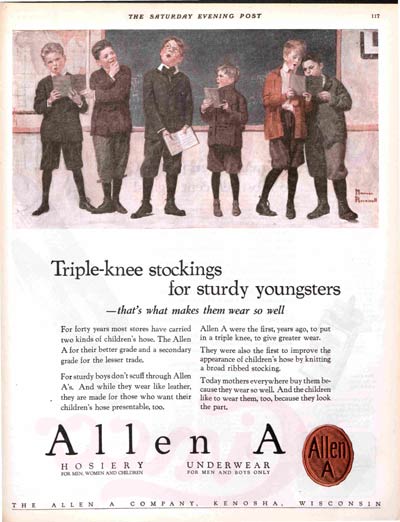
Allen A Hosiery advertisement
from February 9, 1924
You know how hard boys are on their stockings. That is, back when they wore stockings. This delightful ad from 1924 with a classroom setting insists that “sturdy boys won’t scuff through” these hose. In the ’20s, knickers were worn until age 13 or 14, and getting those first long pants was a major rite of passage.

Mazda Lamp advertisement
from July 10, 1920
This appealing family scene is from a 1920 ad for Edison Lamp Works. Showing how much electric light adds to our lives, the text waxes poetic: “from the first candle of youth to the twilight of life, the moments that mean most are etched in memory by the glow of a lamp.” Advertisements today show the work of some outstanding photographers, but it is difficult to imagine a photo as engaging as a Rockwell painting.
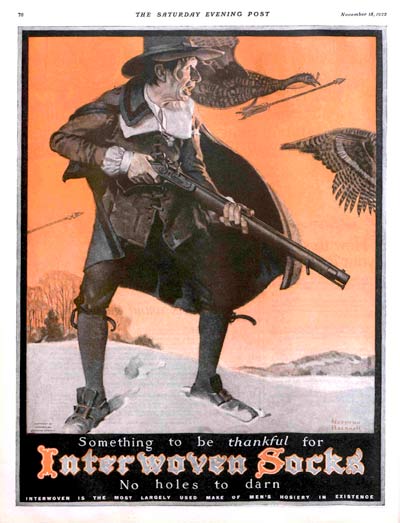
Interwoven Socks advertisement
from November 18, 1922
Rockwell’s turkey-hunting pilgrim from Thanksgiving 1922 is an ad for, of all things, Interwoven Socks. Our guess is that the pilgrims weren’t blessed with this brand of men’s hosiery. According to the ad, though, Interwoven Socks were something to be thankful for.
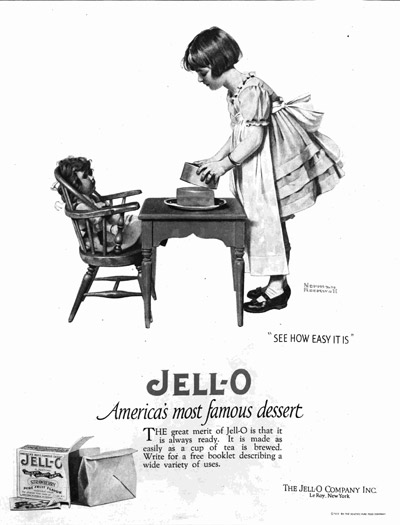
Jell-O advertisement
from May 17, 1924
Like The Saturday Evening Post, Jell-O has been around for eons, and this adorable ad by Rockwell is from 1924. A master at depicting boys (see first ad above), Rockwell felt he wasn’t very good at painting little girls. We have to disagree: the girl, her dress, her Mary Jane shoes, and the pretty dolly combine to make this one a treasure.
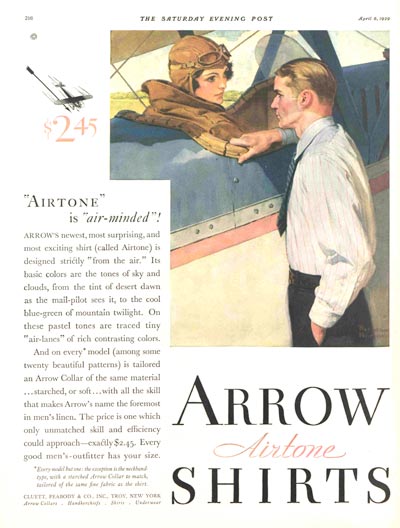
Arrow Shirts Advertisement
from April 6, 1929
Arrow Shirt ads were normally associated with artist J.C. Leyendecker, who was as famous for his elegant advertisements for the famous shirts as he was for his Post covers. Thus, we were surprised to find this Arrow Shirt ad from 1929 illustrated by Leyendecker’s friend, Norman Rockwell. If you think a female pilot is a bit fanciful, think again. There were women pilots as early as 1910.
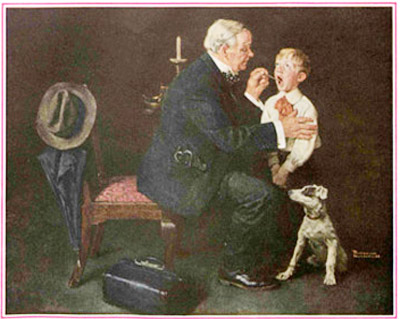
Listerine Advertisement
from January 31, 1931
A tow-headed boy, that faithful dog, and a kindly old doctor — it doesn’t get any more Rockwell than this. The artwork is worthy of a Post cover, but it’s an ad for Listerine mouthwash from 1931.
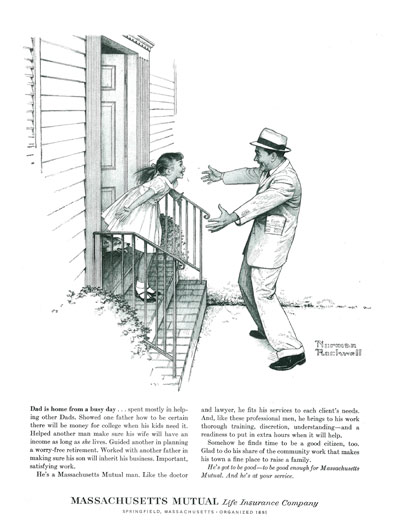
Mass Mutual Advertisement
from May 13, 1961
Daddy’s home! And dad was busy all day showing other dads “how to be certain there will be the money for college when his kids need it” and assisting in retirement planning. At retirement age himself, Norman Rockwell was still painting Post covers and churning out drawings for major advertising clients like Massachusetts Mutual Life Insurance Company.
Become a Saturday Evening Post member and enjoy unlimited access. Subscribe now
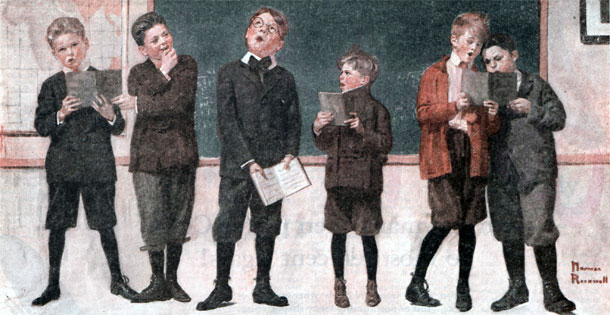
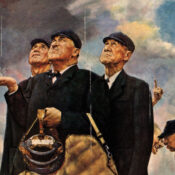
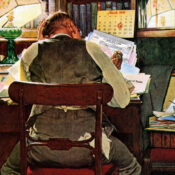
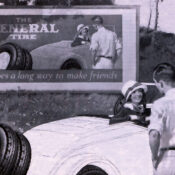
Comments
zizi de ma mere
Thanks for running this great Rockwell ad feature again, because it’s wonderful and some people (like me—not sure how) missed out on it in 2012.
Two favorites here include the beautiful Mazda Lamp and Arrow Shirt ads. Even though there may have been women pilots since 1910, this ‘gender role reversal’ was eye catching in 1929. It still is in 2016, in part because we don’t see or hear about lone fliers like this (male or female) anymore.
Leyendecker did the lions share of the Arrow Shirt ads and they’re incredible. Still, this Rockwell ad shows there was room for a different style that was also very appealing.
I have enjoyed Norman Rockwell’s Post pictures, and his numerous calenders. He was a classic, he knew so much about life, and brought kindess, love, reality and diversity to the world. God bless you Norman Rockwell, you will live forever in the hearts of America.
I have a Norman Rockwell, On the Left hand side it has painted by Norman Rockwell for Allen A company on it in the middle it says boys singing and the right has Norman rockwell on it. I cant find anything on it but a AD for ALLen A company.but it does not have the ad. can anyone tell me what I got or if its a rare piece.
I was surprised that the most interesting article contained none of the advertising posters Rockwell created for motion pictures. Among the most prominent are posters for Orson Welles’ masterpiece, “The Magnificent Ambersons” and the mid-1960s remake of John Ford’s “Stagecoach.” Perhaps Ms. Denny could do a second article about this area of Rockwell’s world.